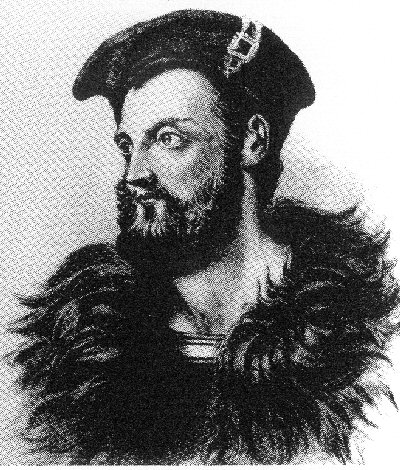Owen Roe O’Neill was the son of Art O’Neill, a younger brother of the Great Hugh O’Neill, and he was a famous Irish leader of the seventeenth century.
As a young man he left
O’Neill proposed that an Irish Republic under Spanish protection be established to avoid in-fighting between Irish Catholic landed families, over which of them would provide a prince or king of Ireland. This plot came to nothing. However in 1642 O’Neill returned to
The Irish campaign was subsumed in the civil wars of the period.
But jealousy between the kinsmen was complicated in October 1642 by differences between the Confederation of Kilkenny and Owen Roe. Owen Roe professed to be acting for the English King Charles. His real aim was an independent Catholic
More concretely O’Neill wanted the overturn of the Plantation of Ulster and the recovery of the O’Neill clan’s ancestral lands. Moreover he was unhappy that the majority of Confederate military resources were directed to the Leinster Army.
Although Owen Roe O’Neill was a competent general, he was outnumbered by the Scottish Covenanter army that had landed in
O’Neill complained that the devastation of
Furnished with supplies by the Papal Nuncio Rinuccini, in 1646 O’Neill attacked Major-General Robert Munro’s Covenanter Army from Scotland, who had landed in
This might well have been the greatest failing ever in Irish Nationalist history, for the country was his for the taking.
In March 1646 a treaty was signed between the Catholics and Ormonde, which would have committed the Catholics to sending troops to the aid of the King’s side in the (civil) war in England. The peace terms however, were rejected by a majority of the Irish Catholic military and the Catholic clergy including the Nuncio Rinuccini. O’Neill led his
So alienated was O’Neill by the terms of the peace that the Confederates had made with Ormonde that he refused to join the Catholic/Royalist coalition and in 1648 his Ulster army fought against other Irish Catholic armies. He made overtures for alliance to General Monck, who was in command in the north, to obtain supplies for his forces, and at one stage even tried to make a separate treaty with the English Parliament against the Royalists in
Before, however, anything was accomplished by this combination, in 1649 Owen Roe died. The traditional Irish belief was that he was poisoned by the English, but it is now thought more likely that he died of disease. The Catholic nobles and gentry met in
O’Neill’s Ulster army was unable to prevent Cromwell’s complete conquest of Ireland, despite Hugh (Dubh) O’Neill’s (Owen Roe’s nephew) successful campaign at Clonmel; and was destroyed at Donegal ( Battle of Scarrifhollis) in 1650. Its remnants continued guerrilla warfare until 1653, when they surrendered at Cloughoughter in
In the nineteenth century, O’Neill was celebrated by the Young Ireland movement which saw O’Neill as an Irish patriot.
The patriot Thomas Davis wrote a famous song about O’Neill, titled “The Lament for Owen Roe” which was popularised in The Nation, their newspaper.
